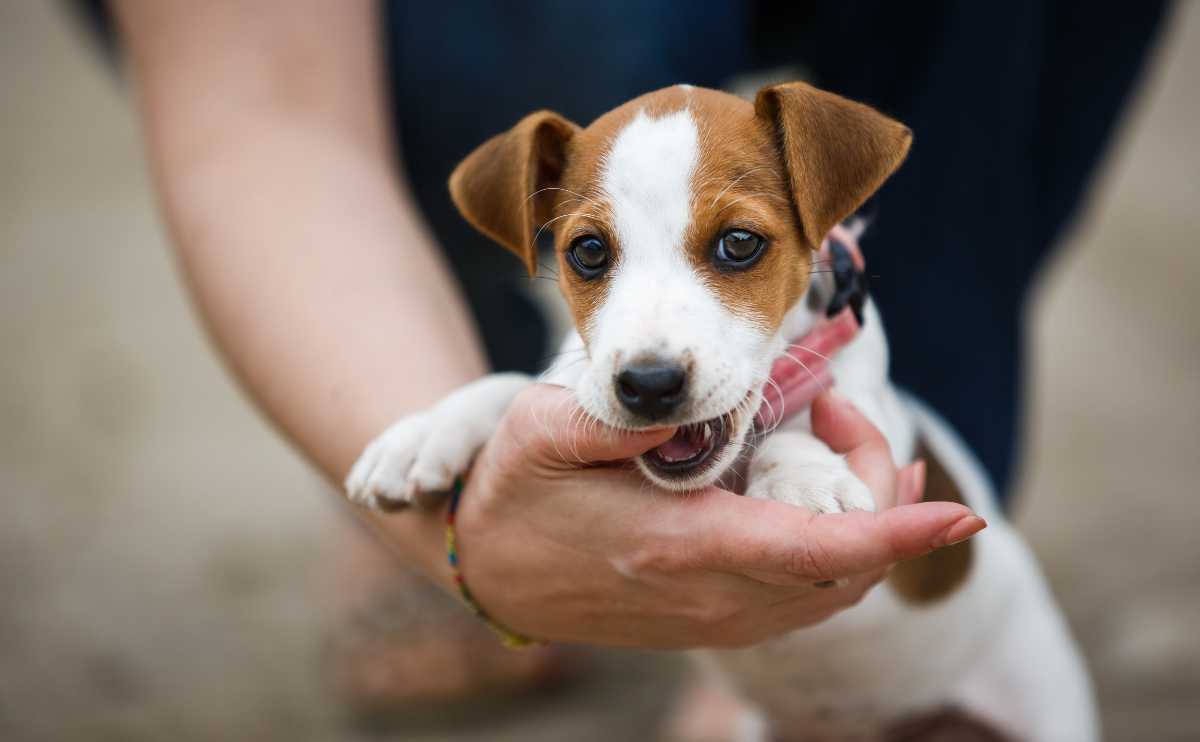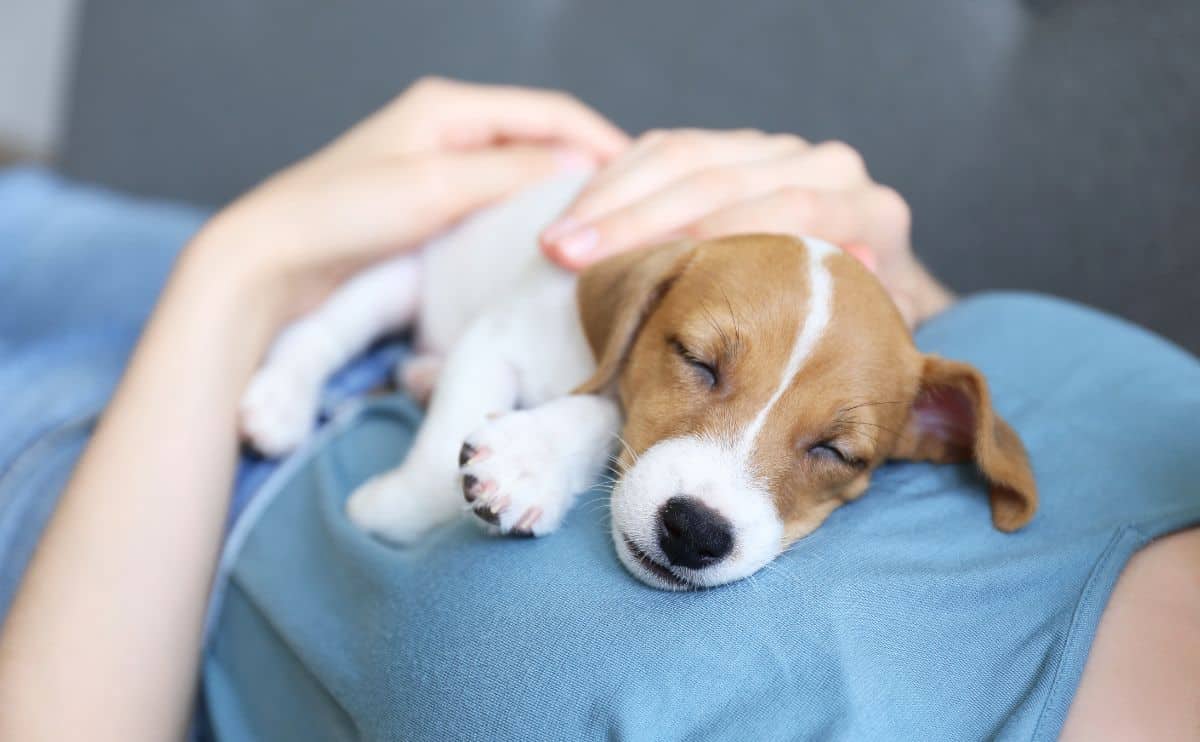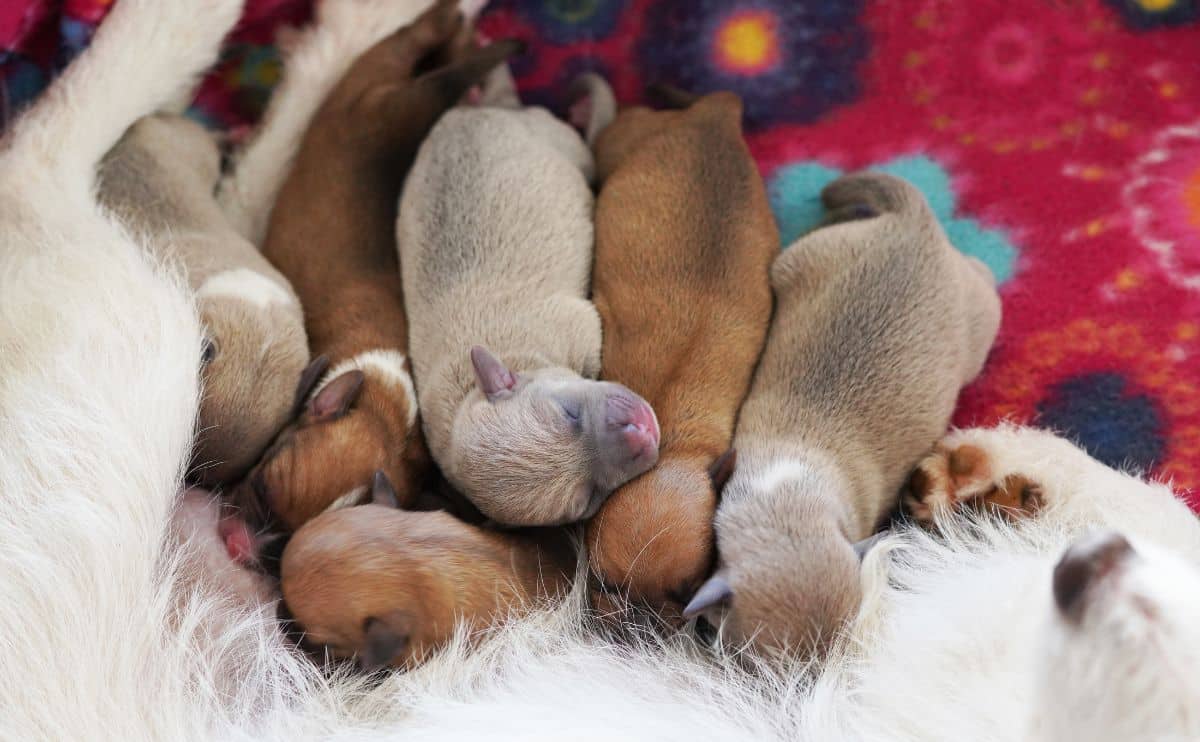When you purchase through links on our site, we may earn a commission. Here’s how it works.
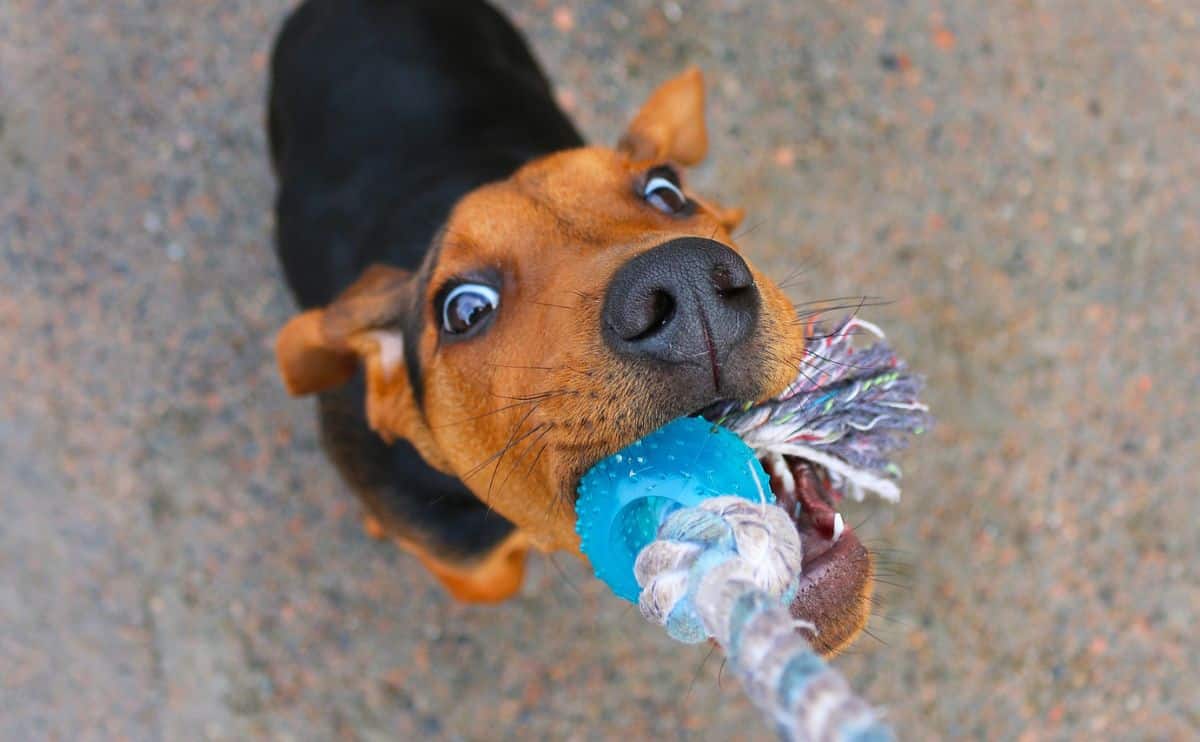
Are you the proud parent of an adorable little puppy? This is a new realm for you, and you’re probably unsure what normal puppy behavior should look like. Puppies obtain bad habits by being given love and affection constantly, which they need, but can also keep them from learning good habits.
Like a baby, when they cry, they may need feeding or change, but other times they may simply want to be held. Which makes you feel great but doesn’t always help your baby grow and become social with other people.
Puppies are identical and need to learn how to behave properly so they can grow into the great dogs we know they can be. So, let’s nip these puppy problems in the bud before they get out of control.
Puppy Biting
Just like babies, puppies explore the world by putting things in their mouths. At first, you may find this cute, but as the puppy gets teeth, it’s not so sweet. How can we stop puppy biting? We have to teach puppies that human skin is sensitive. He most likely isn’t trying to hurt you intentionally and is trying to play.
Similarly to when he plays with other dogs, they will nip at each other, and every now and then, a pup will bite too hard, and the victim of the bite will yelp in pain. The play usually stops, and your puppy realizes that he bit too hard. Shortly after, the two dogs are back playing again.
This is how he learns to lower the intensity of his bite. He makes sure no one gets hurt, and he learns to be gentle. This is how you can teach him not to bite people too.
Play with your puppy and let him put your fingers in his mouth. When he bites hard, give a high-pitched yelp as if you’re in pain. Let your hand go limp, and this will startle him and cause him to stop biting (even if it’s only for a moment). When he stops biting, he may start licking you (to make you feel better, of course), so be sure to praise him and then resume playing with him.
If he bites again, repeat this process. If it happens three times within 15 minutes, stop playtime. If this is not effective, you can try a time-out instead. After you yelp and your pup is startled, turn your head and ignore him for 10-20 seconds. If he starts biting again, get up and move away from him for 10-20 seconds.
After his “time out,” encourage playtime again. This shows him that gentle playtime is acceptable and continues, while painful playtime stops and is unacceptable. If he bites again, repeat these steps.
Once he gets to a place where he stops biting hard, you can create more strict rules and only tolerate progressively gentler bites. When he bites you moderately hard, give a high-pitched yelp. Continue with the rest of the steps and gradually lessen the force of the bites allowed.
How To Stop Your Puppy From Biting (Video)
Here’s an example of how to stop your bad puppy from biting. WARNING: This puppy is absolutely adorable and may convince you to get a puppy (or another one).
Puppy Chewing: 7 Tips To Get Them To Stop
Puppies put objects in their mouths to explore them. As with babies, they teethe for about 6 months – which causes discomfort. When they chew on things, it helps their gums feel better. However, your puppy needs to know what is and isn’t okay to chew. How can you stop puppy chewing?
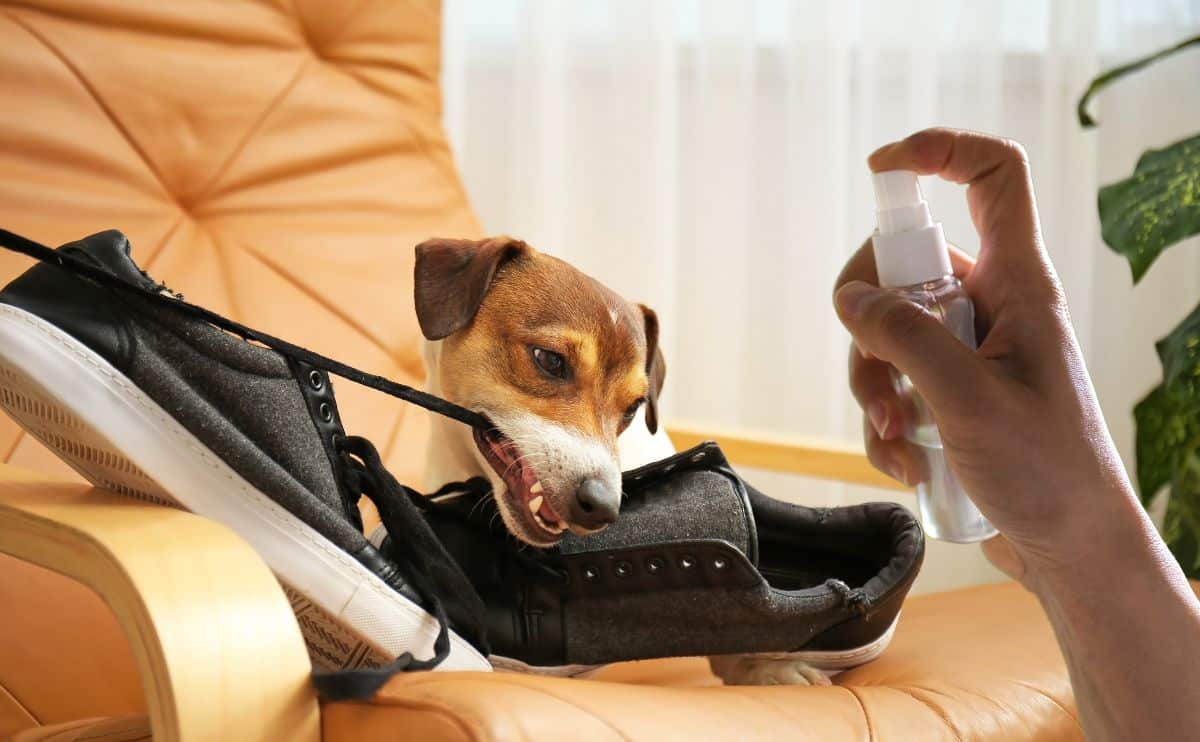
It’s your responsibility to keep things that your puppy shouldn’t be chewing on out of reach. If you have expensive shoes, put them somewhere the puppy can’t get them. The same goes for glasses, earbuds, remotes, smartphones, and trash.

- Get a toy for your pup that he can chew on. This toy should be clearly distinguishable from any other household item (aka, don’t give him an old shoe because he might think all shoes are free-range).
- Until your dog learns what not to chew on, keep him on a leash when he’s in the house. That way, he’s close to you and only has access to things close to you both. You can also place him in his crate for short periods of time when he gets in a chewing mood.
- Make sure he gets plenty of mental and physical exercise. This means taking him for walks, playing fetch, giving him social time with other people, and learning how to play with others (dogs and people included).
- If at any point your dog begins to chew on something he shouldn’t, stop him by making a loud noise (try a loud clap or stomping your foot down). Give him his chew toy, and when he accepts the toy, give him lots of love and praise.
- If you think teething is the cause of his chewing, take a wet washcloth and freeze it. Give it to your pup to chew on. The cold temperature will help soothe his gums. Be sure to supervise him so he doesn’t swallow any pieces.
- Taste deterrents like Bitter Apple can be sprayed on furniture to help keep your pup from chewing.
- If your dog gets a hold of something, he shouldn’t do not chase him or grab it from his mouth. He will see this as a game of tug of war or tag. Instead, exchange the item he has for a treat.
Read more tips on how to stop puppies from chewing.
Puppy Jumping
It feels great when you come home from work, and your puppy sees you and jumps all over you. We perceive this as them saying, “I love you, I missed you, I want to hug you!” However, this habit can grow into a dangerous one. While a puppy jumping all over you is cute and endearing, a grown dog weighing 100 pounds doing so can be overwhelming and dangerous.
Dogs love to smell and to do so, they often have to jump. There are two specific areas that we humans give off our strongest scents: our genital areas and our mouths. (We’ve all been in that uncomfortable situation where we can’t get a dog away from a certain region).
For puppies to get to these areas, they have to get on their hind legs and sometimes jump. It’s difficult for us to turn them away, so we oftentimes pick them up to help calm them down. However, this isn’t a good idea. Your dog needs to learn how to calm himself down with all four paws on the ground.
This isn’t going to be easy, but with persistence, this is something you can prevent. When you first greet your puppy, give him no attention. That means do not touch, talk or look at him. He is anxious and needs to know that if he calms down, he will get the attention he wants.
Do not give any affection to him if he is jumping. He needs to sit or calm down in some other way until you give him affection. Once he has done so, you can acknowledge him. We know this will be hard on you, too, since you missed your pup all day long too. But trust us, and it will be worth it!
Potty Training
Potty training is probably a pet parent’s number one priority. No one likes entering a room and stepping into something that shouldn’t be there. Because this is such a detailed topic and highly requested, we’ve written an article dedicated to housebreaking your puppy.
You might also need pee pads for accidents, training spray to deter accidents, or consider upgrading to an indoor dog toilet of some sort for them to relieve themselves.
Puppy Whining
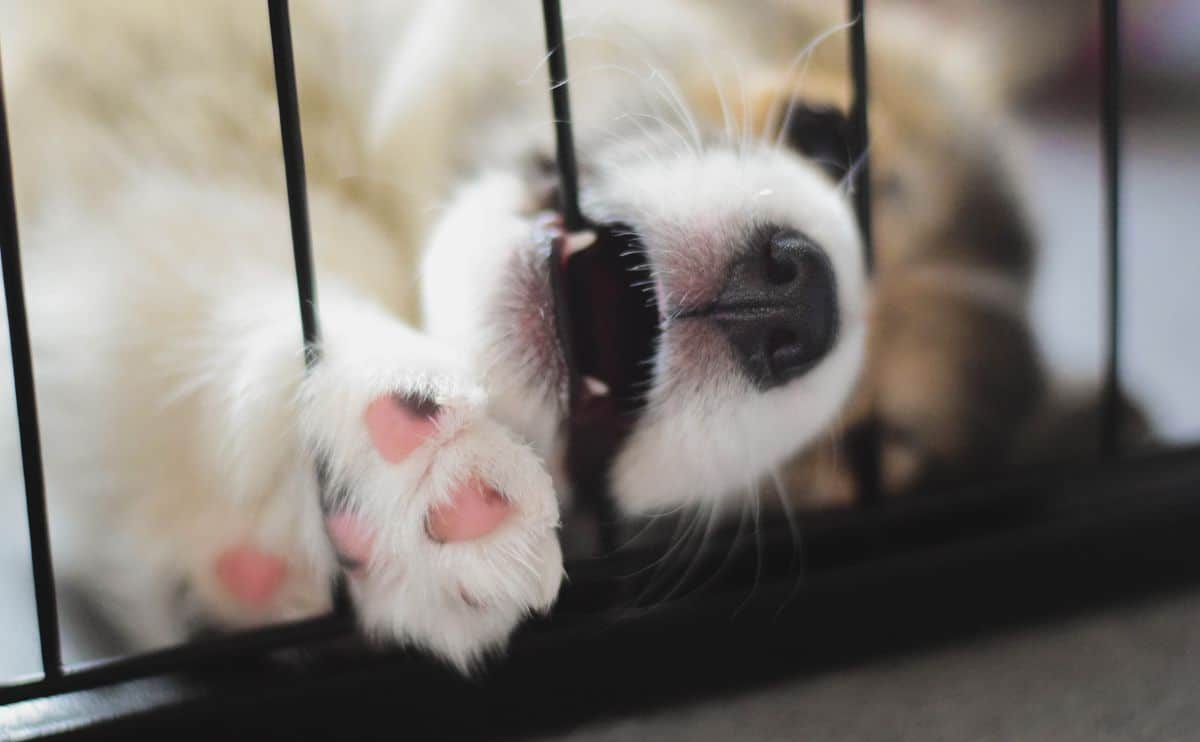
Why is your puppy whining? First, if you are struggling with your puppy crying in his crate, check out this article. However, if your puppy whines randomly (aka, not in his crate), then it may be for a good reason. Does he need to go potty? Is he hungry? Has he had his walk? Does he need water? Did his toy gets stuck under the couch?
These are all reasonable reasons for him to be whining. But sometimes, it goes too far. If he is whining excessively, he has learned that whining and crying get him whatever he wants, whether that be food, affection, or something else. This is where the whining becomes a bad habit.
First, make sure he is getting adequate food, exercise, and play. He may not think he is getting an appropriate amount of these things, but if the vet says he should get a certain amount of exercise and food, then he is okay.
Do not give him attention when he whines. We know it’s frustrating, but only give him attention when he is quiet. When you give in to his whining that’s when he takes control.
Even though you don’t mean to, you are telling him that it’s okay to whine and that it’s an acceptable form of communication. Ask your dog to stop whining in a gentle tone. If he continues, say it louder and in a more aggressive voice, “Stop whining!” This will make him feel scolded. It may take a few times, but this has been known to help.
9 Common Puppy Illnesses
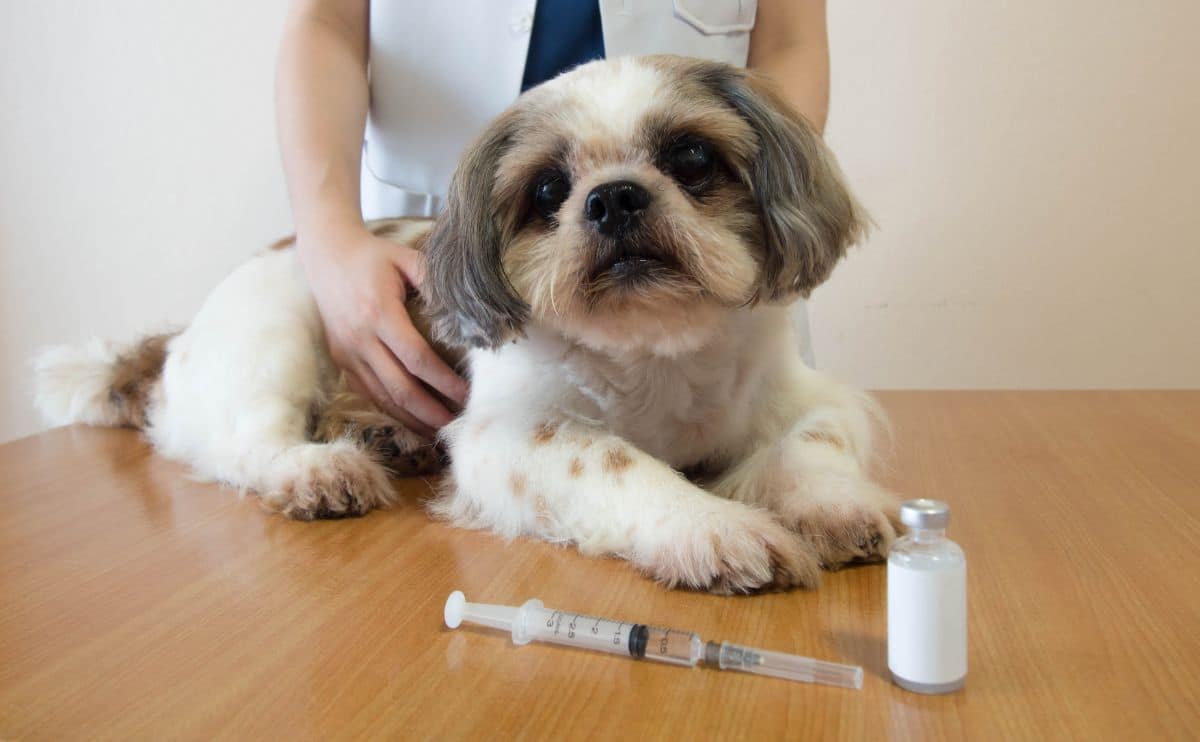
Unfortunately, illnesses are something you’ll have to take into consideration when getting a puppy. Puppies need many vaccines in their first months of life, and it’s important that you know what they are at risk of. Below is a list of common puppy illnesses.
Be sure to check out what vaccines your dog should get and at what age so you can help your puppy avoid these illnesses.
Why Puppyhood Is A Great Time To Consider Pet Insurance

As a puppy, your dog has probably not shown any significant health concerns at a young age. Since pet insurance companies do not cover pre-existing conditions, the younger your dog is when you signup, the better coverage you will likely receive throughout their lifetime.
Further, pet insurance can help support you financially during the unpredictable puppy years when dogs are more likely to chew on things they shouldn’t and run into dangerous situations.
Check out our pet insurance 101 guide to learn more and determine whether pet insurance is worth it for your puppy. You can also get multiple quotes instantly below.
Other Puppy Bad Behavior Problems
Puppies are rambunctious little fur babies that love to play. Sometimes playtime can get aggressive, or they don’t know what a reasonable reaction is to their behavior. That’s why it’s important for you to teach them what is and isn’t okay to do. Feel free to ask us about your puppy’s behavior to see if it’s normal or if it’s something you should try to correct. You might also consider an online dog training course to help.
Tagged With: Biting, Housetraining